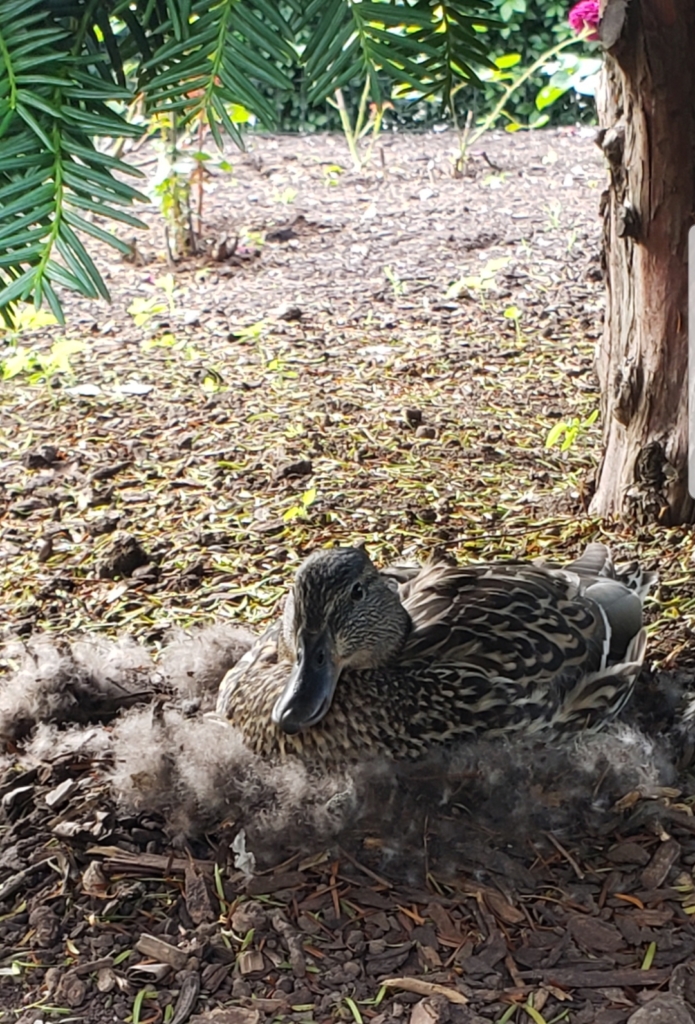 Friends staff and members of the Rose Brigade have been carefully watching a mother duckling nesting in the rose bed adjacent to the Edward Everett Hale statue. The mother duck was discovered just a few weeks ago, preparing for the arrival of her ducklings underneath the shade of the roses.
Friends staff and members of the Rose Brigade have been carefully watching a mother duckling nesting in the rose bed adjacent to the Edward Everett Hale statue. The mother duck was discovered just a few weeks ago, preparing for the arrival of her ducklings underneath the shade of the roses.
Over the weekend the ducklings hatched, and with help from brigade volunteers, were able to make their way to the Public Garden lagoon in true Robert McCloskey fashion. By Sunday morning, all nine hatchlings and their mother were spotted at the edge of the lagoon, running in and out of the water.
Just sitting and watching the ducks and all those cute ducklings can be good for you, it reduces anxiety and increases creativity thanks to the benefits of biolphilia. People try to return the favor by feeding them, usually bread. Bread, crackers, chips, doughnuts or popcorn are actually unhealthy and potentially dangerous for the birds. It can lead to many health problems like obesity, malnutrition and a crippling condition known as “angel wing”.
In addition, too much free food teaches the ducks and ducklings to beg rather than forage. Even the bread they don’t eat can damage the water quality of the lagoon. This seemingly generous act, in fact, can be extremely harmful.
1. Bread is bad for birds’ health
Most birds have a pretty diverse diet. Mallards eat a mix of plants and seeds and well as insects, worms and snails. Bread has calories but none of the nutrients they actually need.
2. Free food isn’t all its quacked up to be
In addition to the nutritional issues posed by abundant bread, too many handouts of any kind raise a wide range of problems for waterfowl. These can include overcrowding, disease and delayed migration. This is important now with all the ducklings in the lagoon. When adult ducks get dependent on free bread, they may fail to give their ducklings a sufficient education in foraging.
3. The leftovers have a ripple effect
If calorie rich foods accumulate in a body of water, it can trigger algae blooms that create hypoxia and can wipe out pond life and rob birds of natural food supplies.

